We’re motivated by something greater than the bottom-line. We believe in supporting both the health of the education system in the United States and the well-being of each and every student. So we make a point to share what we learn with others who are positioned to make a difference, too.
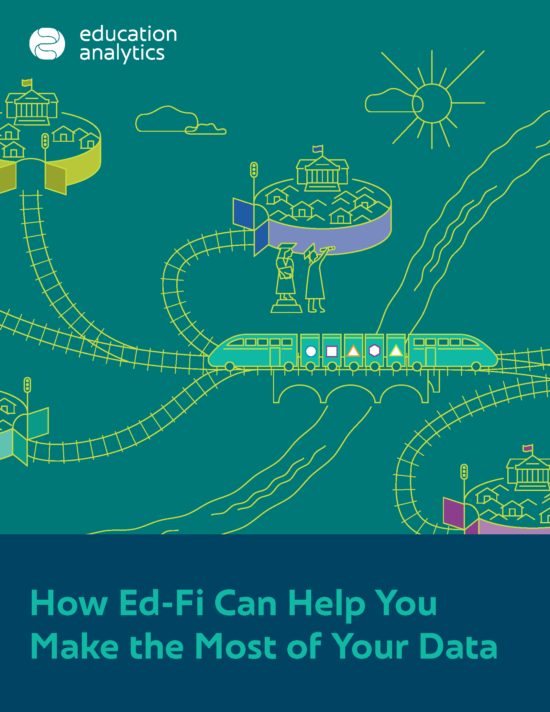
How Ed-Fi Can Help You Make the Most of Your Data
This resource provides guidance for education agencies that are beginning to consider whether and how they might implement Ed-Fi to better manage their data. We define some key terms and concepts, walk through the five steps to get started with Ed-Fi, and include a list of resources where you can learn more.
Learn More
About
How Ed-Fi Can Help You Make the Most of Your Data
Filter
- Guides
- COVID-19
- Data Interoperability
- Evaluation
- Growth Measures
- School Metrics
- Social Emotional Learning
- Attendance
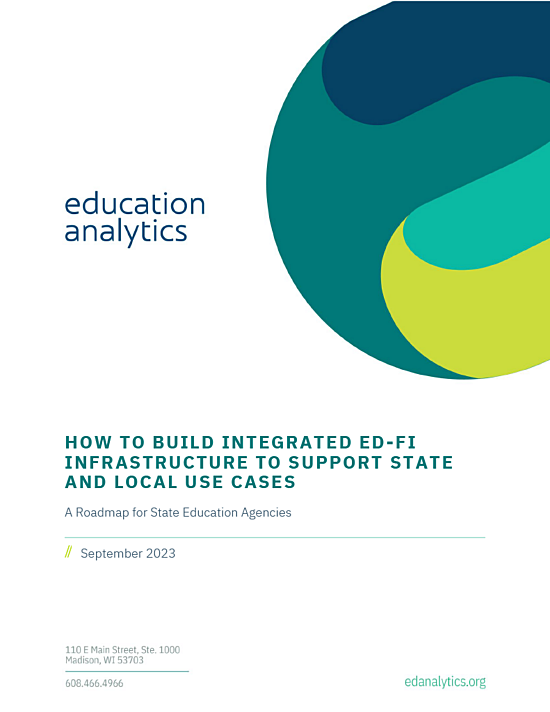
How to Build Integrated Ed-Fi Infrastructure to Support State and Local Use Cases: A Roadmap for State Education Agencies
In collaboration with the Georgia Department of Education, the Michigan Data Hub, the Wisconsin Department of Public Instruction, and INsite at Indiana University, Education Analytics has created a new resource highlighting the benefits of implementing an integrated Ed-Fi infrastructure at the state level. This resource provides a roadmap for State Education Agencies (SEAs) to implement an integrated Ed-Fi model in their own state to enable them to drive scale and impact of Ed-Fi.
Learn More
About
How to Build Integrated Ed-Fi Infrastructure to Support State and Local Use Cases: A Roadmap for State Education Agencies
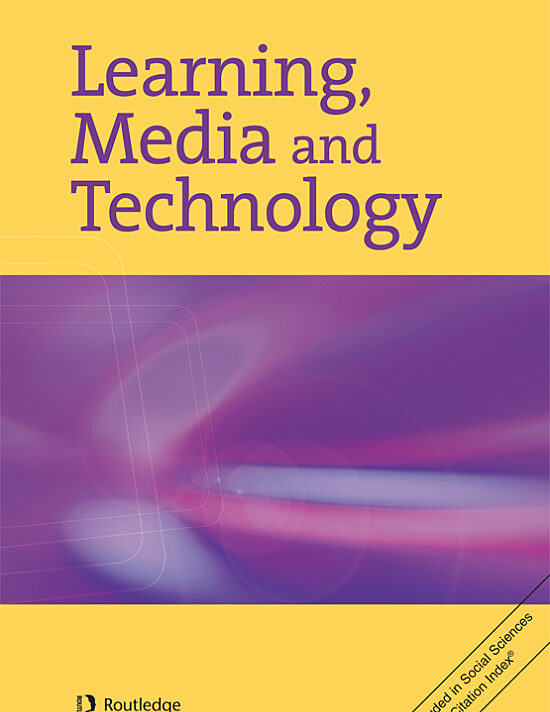
Interoperability and data standards in the K-12 education sector: Intersections with data justice
This paper examines the concept of open-source data interoperability in the United States’ K-12 education domain, specifically addressing the implications of interoperability for data justice. Building on the nascent research and theorizing in the fields of both data justice and interoperability in educational contexts, this paper provides an overview of the current state of this intersection.
Learn More
About
Interoperability and data standards in the K-12 education sector: Intersections with data justice
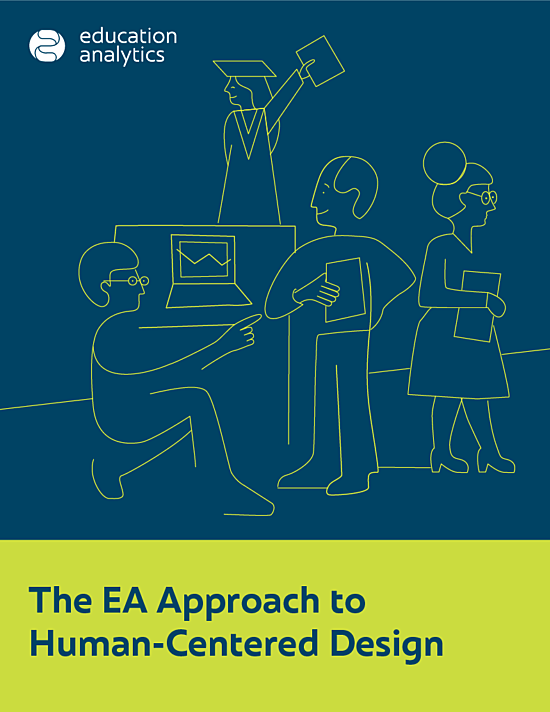
The EA Approach to Human-Centered Design
This resource outlines EA's approach to human-centered product design, which takes into consideration the preferences and mindsets of real people. Each step in our design process ensures our products and services are easily accessible and effective for our users.
Learn More
About
The EA Approach to Human-Centered Design
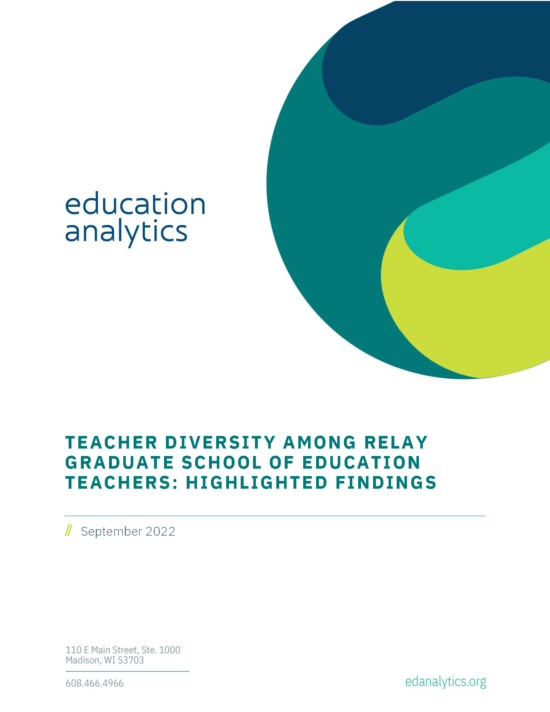
Teacher Diversity Among Relay Graduate School of Education Teachers: Highlighted Findings
Non-traditional educator preparation programs, such as the Relay Graduate School of Education, may be an effective way to introduce more teachers of color into the teacher supply pipeline. Here, we summarize evidence using six years of longitudinal data from the New York City Department of Education to address three research questions related to reducing racial and ethnic mismatch between students and teachers.
Learn More
About
Teacher Diversity Among Relay Graduate School of Education Teachers: Highlighted Findings
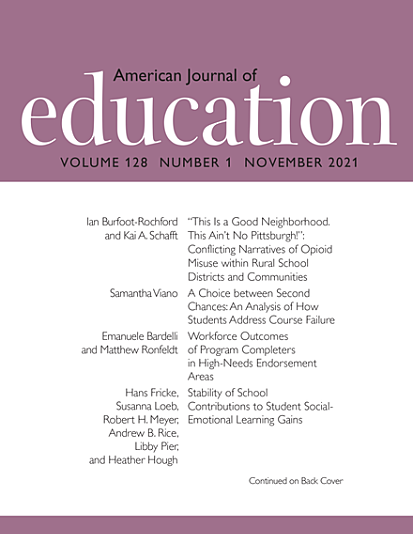
Stability of School Contributions to Student Social-Emotional Learning Gains
Recent attempts to measure schools’ influence on students’ social-emotional learning (SEL) show differences across schools, but whether these estimated differences measure the true effects of schools remain unclear. To better understand these measures, we examine the stability of estimated school-by-grade effects across two years using large-scale survey data.
Learn More
About
Stability of School Contributions to Student Social-Emotional Learning Gains
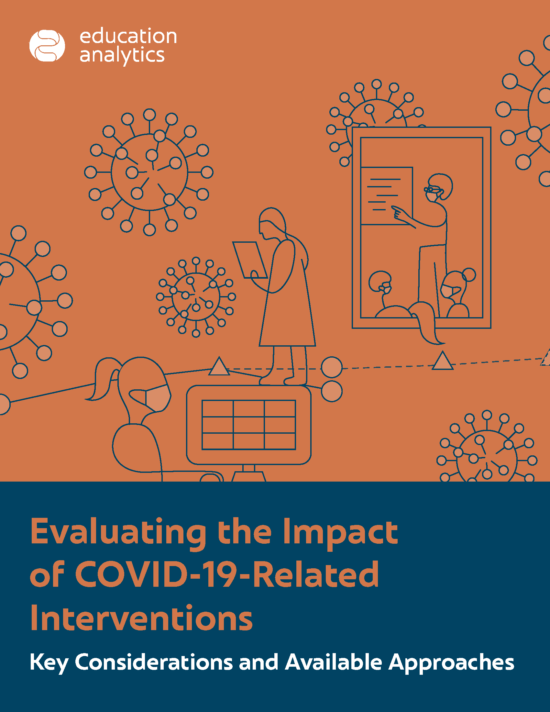
Evaluating the Impact of COVID-19-Related Interventions: Key Considerations and Available Approaches
This resource provides guidance for education agencies that are considering how and when to evaluate programs designed to address the impacts of COVID-19 on student outcomes. We present some key questions to consider, share common data requirements, and outline different options for designing the analytic approach.
Learn More
About
Evaluating the Impact of COVID-19-Related Interventions: Key Considerations and Available Approaches
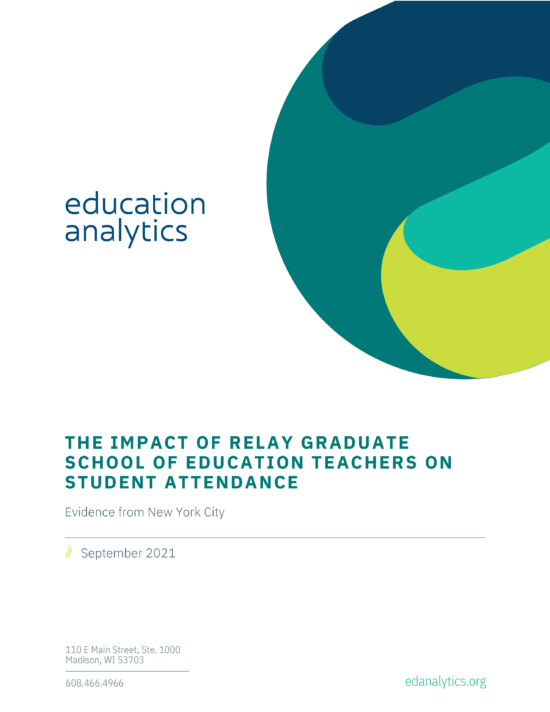
The Impact of Relay Graduate School of Education Teachers on Student Attendance
This report examines how New York City teachers from the Relay Graduate School of Education influenced students’ attendance. We found that Relay teachers had positive, statistically significant impacts on students’ attendance, especially for students from historically marginalized backgrounds.
Learn More
About
The Impact of Relay Graduate School of Education Teachers on Student Attendance
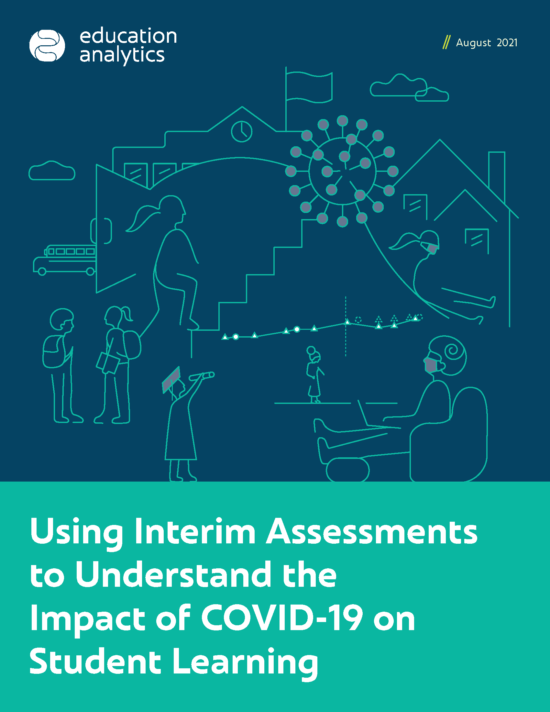
Using Interim Assessments to Understand the Impact of COVID-19 on Student Learning
This resource is meant to support education agencies as they consider additional data they can use to identify where students are academically, including EA’s lessons learned in working with these data. We include guiding questions and data requirements that agencies can use to start conversations with their internal stakeholders.
Learn More
About
Using Interim Assessments to Understand the Impact of COVID-19 on Student Learning
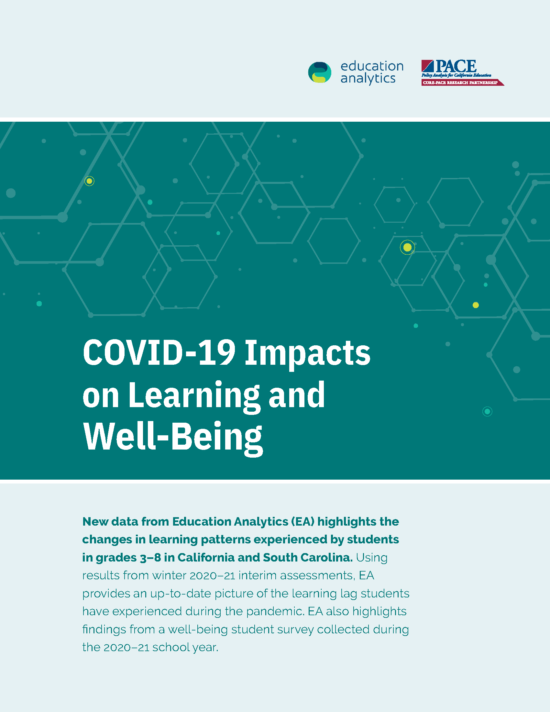
COVID-19 Impacts on Learning and Well-Being
This infographic highlights EA's research into changes in learning patterns experienced by students in grades 3–8 in California and South Carolina. Using results from winter 2020–21 interim assessments, EA provides an up-to-date picture of the learning lag students have experienced during the pandemic. EA also highlights findings from a well-being student survey collected during the 2020–21 school year.
Learn More
About
COVID-19 Impacts on Learning and Well-Being